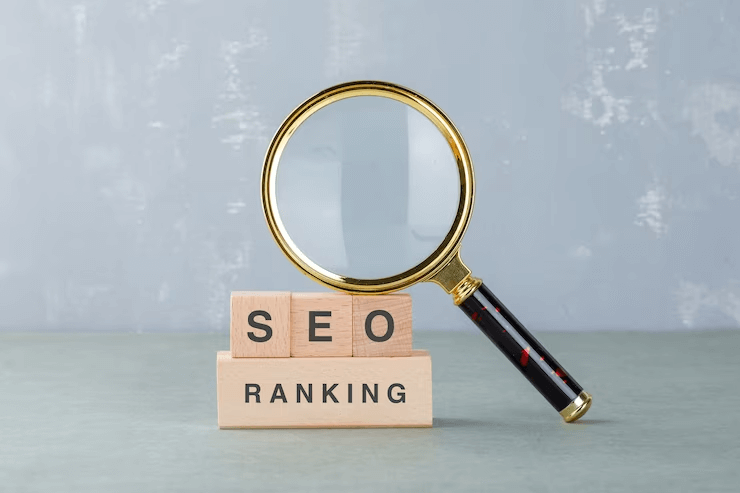
In the competitive digital landscape, establishing a strong online presence has become crucial for website success. Whether you’re maintaining a personal blog, running an e-commerce store, or showcasing your creative work, the internet is the prime platform where you can connect and engage with your target audience.
In order to effectively navigate the vast online realm, you need to improve search engine visibility. The strategic and proven approach to achieving this is through Search Engine Optimization, commonly known as SEO.
In this post, we’ll explore the best strategies to boost your WordPress SEO. Implementing these tips and techniques will help you to optimize your site for Google.
Important Strategies to Optimize Your Site For Google
There are many ways to boost the visibility of your site on search engines. Let’s delve into these strategies together-
1. On-Page WordPress SEO
On-page SEO is the cornerstone for achieving better online visibility. This allows WordPress websites to enhance their authority, credibility, and competitiveness in the increasingly evolving digital environment.
Effective On-Page SEO involves several key elements-
- Keyword Research and Analysis: This begins with in-depth keyword research using effective tools like Google Keyword Planner, SEMrush, or Ahrefs. Identifying relevant keywords is crucial to connect with your potential audience effectively.
- High-Quality Content Creation: Creating engaging, informative, and original content is vital to optimizing your site for Google. This includes proper structuring of the content with heading tags (H1, H2, H3), as well as integrating multimedia elements such as images, videos, and infographics to keep readers engaged with your site.
- Optimizing Meta Tags: Meta tags, including title and description tags, are the initial touchpoints for users in search results. Crafting catchy title tags with target keywords, along with concise and relevant meta descriptions, can encourage users to click through to your website.
2. Technical SEO
Improving your website’s technical aspects, in line with search engine rules improves website search engine visibility, rankings, and the user experience. Professional WordPress SEO services can speed up this process, resulting in a website that’s well-prepared for success.
Technical SEO involves the following elements-
- Website Speed and Performance: Quick website loading is critical for both SEO and a positive user experience. Utilizing caching plugins and optimizing images can significantly reduce loading times. You can opt for a dependable hosting provider to minimize server response time and faster page loading.
- Mobile Responsiveness: Mobile-friendly is a necessity, not a choice. Choose a responsive theme that adapts seamlessly to various device screen sizes to offer an optimal user experience. Consistently conduct assessments and resolve any mobile usability concerns on your site to improve user experience and maintain your website’s competitiveness in the digital landscape.
- SSL and Website Security: Strong website security is crucial for user trust and also for SEO. Implementing an SSL certificate to enable HTTPS to protect data and also considered a positive factor by search engines. Regular security audits and updates will help to prevent vulnerabilities and maintain the integrity of your website.
3. Improve User Experience
User Experience (UX) and Accessibility are important for WordPress websites. It significantly influences visitors’ interactions with and perceptions of the content.
A smartly designed and user-friendly site structure guarantees smooth navigation and allows users to effortlessly access the information they need without any potential frustrations.
Key elements that improve user experience and accessibility-
- Simple Site Structure- A user-friendly and intuitive site structure enhances the user experience and also plays a pivotal role in optimizing your site for Google. To achieve this, it’s essential to establish a clear and logical navigation system that will reflect the content hierarchy within your website. Implementing breadcrumbs can further help users understand their position on your site and make it easy for them to move backward when needed.
- Optimizing Accessibility– Incorporating accessibility considerations into your site is a good idea to ensure that all users can access and interact with your content seamlessly. This involves using semantic HTML to create content that is clear and navigable by screen readers. Furthermore, providing descriptive alt text for images and multimedia elements enhances the experience for visually impaired users.
4. Off-page SEO
Link Building and Off-Page SEO are essential for WordPress websites. They help to build trust and improve visibility by obtaining quality backlinks from reputable sources.
Ethical practices like guest posting and influencer partnerships build connections and attract referral traffic.
Essential elements of Off-page SEO and Link-building include-
- Leveraging Social Media: The integration of social media platforms is a powerful way to expand the reach and engagement of your content. Incorporate social sharing buttons on your website to encourage users to engage with and share your content. While social signals don’t directly impact WordPress SEO rankings, improved engagement can indirectly contribute to better search engine visibility.
- Establishing High-Quality Backlinks: Gaining backlinks from reliable and relevant sources sends a strong signal to search engines that your content is both valuable and trustworthy. To naturally earn backlinks, consider strategies such as contributing guest posts to reputable websites, collaborating with influential figures, and actively participating in industry-related forums.
5. Ongoing Monitoring and Improvements
The process of monitoring and continually improving a WordPress site is crucial for its ongoing success in the ever-changing online world. Utilizing tools like Google Analytics to consistently monitor important metrics, such as user behavior, site performance, and traffic sources helps website administrators gain valuable insights. By analyzing this data, they can spot trends, understand user preferences, and tweak content strategies to keep their websites relevant and effective.
Conclusion
Optimizing a WordPress website for search engines is crucial for website success. By focusing on the critical elements highlighted in this blog, you can keep your WordPress site competitive and engaging in the dynamic online landscape, delivering a seamless user experience. If you are looking for professional support to optimize your site for Google, please feel free to contact us!




